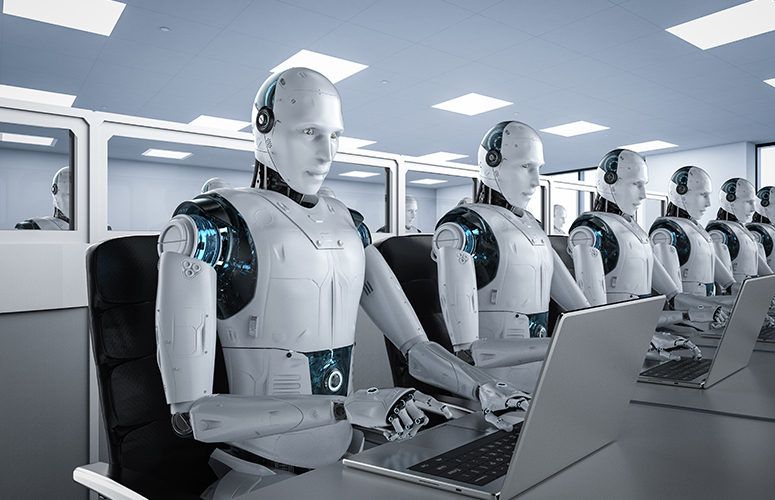
Tech, AI Transforming the Workplace
In Action on Innovation
By Nicole M. Sandelier, NJBIA Director of Economic Policy Research On Nov 28, 2019The jobs of the near future are astonishingly different from the jobs of the recent past. Advancements in technology and artificial intelligence (AI) are transforming economies around the world and requiring businesses to rethink workforce strategy. The rapid adoption of new technologies has companies preparing for the creation, transformation and elimination of jobs.
Changing Role for Humans. Technology is disrupting businesses and entire industries. As the use of AI grows, occupational disruptions will become broader and more profound. So, it should come as no surprise that 54% of the existing workforce will require upskilling or reskilling by 2022, according to the World Economic Forum. McKinsey & Company has also reported that upwards of 375 million people may be forced to change occupations and learn new skills by 2030 as a result of technological advancements and AI. These dynamic changes will continue to impact workforce needs, creating opportunities and threats for employees and employers.
Technology and AI are altering workforces and talent pipelines, but their true impact on human employment is a matter of debate. On one hand, these advancements have led to the automation of some jobs and tasks, eliminating or dramatically reducing the need for humans to do them. But studies have found technology creates jobs as well. Globally, the World Economic Forum has estimated that 75 million human jobs may be replaced by technologies, but 133 million new roles are likely to emerge in a future workforce that includes humans, machines and algorithms. To align with new technologies, companies are reconfiguring required skillsets to fill their new workforce needs.
Impact on Jobs. Technological advancement and AI are impacting some of the largest occupational categories. According to McKinsey & Company, office support, food service, production work, customer service, and retail sales are among the careers starting to be phased out. At the same time, healthcare, STEM occupations, creatives and art management, and business services are likely to experience growth because of technology and AI.
In some cases, the new jobs may be different occupations or located in different states. Those who study AI expect places with more robust and diverse economies, high-growth industries, and more educated populations to be better positioned for employment growth. Rural areas of the US may experience a decade of job loss, while urban areas are likely to see net job growth in the near future.
Whether advancing technology and AI hurt or help businesses in the future depends on how well businesses anticipate changes and plan for them. Understanding the dynamic changes taking place globally and nationally is imperative so that New Jersey employers, employees, and policymakers can prepare for a strong workforce pipeline in the future.
To access more business news, visit NJB News Now.
Related Articles:





